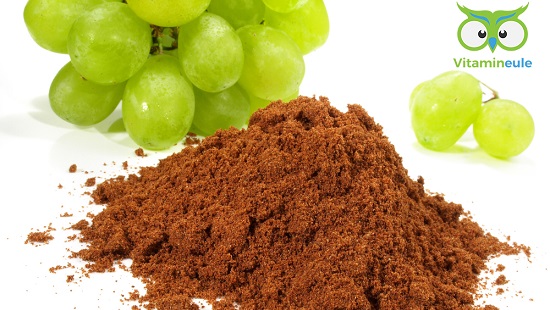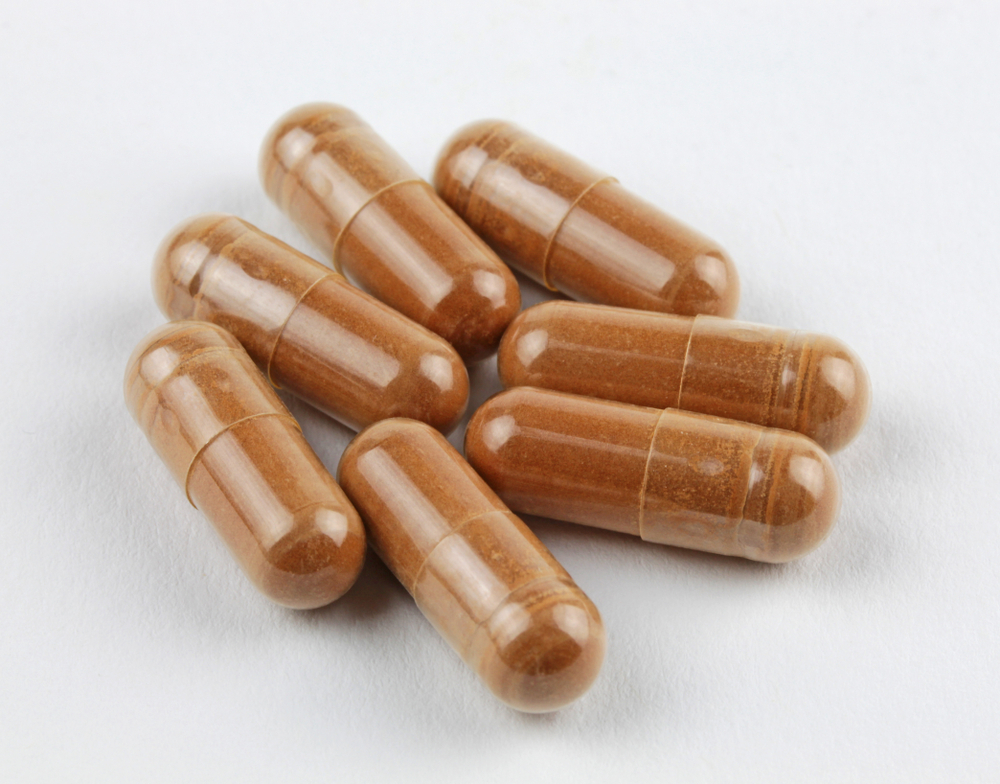

Team Vitamineule
Questions, wishes or suggestions? Simply contact us by e-mail or on Facebook.
What is OPC?
OPC is the abbreviation for Oligomeric Proanthocyanidins. It is a herbal agent that has antioxidant and anti-inflammatory properties. This substance belongs to the group of polyphenols, but is assigned to flavanols due to its chemical structure. Altogether these are called secondary plant substances. Pure OPC occurs as a natural defence in plants, because it protects and strengthens the plants against the environment. The content of OPC is particularly high in grape seeds, apples and nuts.
What tasks does OPC perform?
OPC is considered one of the strongest antioxidants. It protects the body from the attacks of free radicals and helps with all kinds of stress. It plays a decisive role in maintaining normal skin. The moisture barrier of the skin cells is improved by the alpha hydroxy acid contained in OPC. Thus an OPC-containing skin cream ensures faster wound healing and the reduction of scars. That is why OPC is also very well known in the cosmetic industry as it is supposed to provide the well-known anti-aging effect. OPC also ensures strong, shiny and healthier hair. Furthermore, the polyphenolscontained in OPC neutralize oxygen radicals that cause inflammation in the body. In addition, they help to improve vitamin C activity and protect against bacteria, viruses and diseases. OPC protects cell structures and genetic make-up and neutralizes various types of free radicals. Furthermore, OPC acts as a vascular protection by preventing excessive permeability of the vessel walls. Further tasks are the reduction of tissue damage, the strengthening of blood vessels and the improvement of blood circulation. As OPC is a blood-thinning agent, it also improves blood circulation.
The right dosage of OPC
The recommended amount of the vitamin for an adult is between 150-400 mg. It should also be noted that the dosage of OPC also depends on your age, sex, weight and energy requirements.

In which foods is OPC contained?
OPC is found in various plants and fruits. Especially the shells, seeds and core of the below mentioned foods contain a high amount of OPC.
OPC content in food in mg/100g:
- cocoa powder approx. 657
- Grape seeds approx. 373
- Pecan nuts approx. 85
- Plums approx. 72
- Cranberries approx. 52
- Pinto beans approx. 46
- Red wine approx. 39
- Almonds approx. 26
- Apples approx. 22
- Strawberries approx. 14
- Blueberries approx. 13
The combination of OPC and vitamin C
OPC is considered to be the most important partner of vitamin C, because OPC has a strong antioxidant effect and in combination strengthens the effect of vitamin C by a factor of 10. Due to this synergistic effect it is recommended to take OPC and vitamin C together. OPC serves as a CO factor and increases the protection, because the interaction of OPC and vitamin C offers an optimal protection against free radicals.
OPC in which variations?
OPC is available in many different variations. Besides OPC capsules, OPC tablets are also available. These are absorbed very quickly through the oral mucosa. For those who have problems swallowing, there is the possibility of using OPC powder. This can be easily mixed in water, juice or smoothies.

Our recommendation:
Vitamineule® OPC capsules
In our online shop you will find our OPC capsules from Vitamineule®, which are completely free of artificial additives.
The OPC capsules contain a total of 300mg of pure OPC per capsule. Each can contains
90 capsules. In addition to fast & free shipping, we offer a voluntary six-month return guarantee for all products.
What should be considered when taking OPC?
- when taking OPC, dairy products should be avoided in order to achieve an optimal OPC intake
- anyone who is allergic to grapes or grape seed extract should avoid taking OPC grape seed extract
- OPC should be taken 30 minutes before the meal
- OPC has a blood-thinning effect, therefore you should always consult a doctor before taking OPC and blood-thinning medication
Conclusion
OPC is a herbal agent that has antioxidant and anti-inflammatory properties. OPC protects the body against the attacks of free radicals and helps with all kinds of stress. The recommended amount of the vitamin should be between 150-400 mg for an adult. Foods such as grape seeds, plums and almonds are particularly rich in OPC. The combination of OPC and vitamin C is particularly worthwhile, as OPC increases the effect of vitamin C by a factor of 10. When taking OPC, make sure that you take it without dairy products and that you take it about 30 minutes before a meal.
